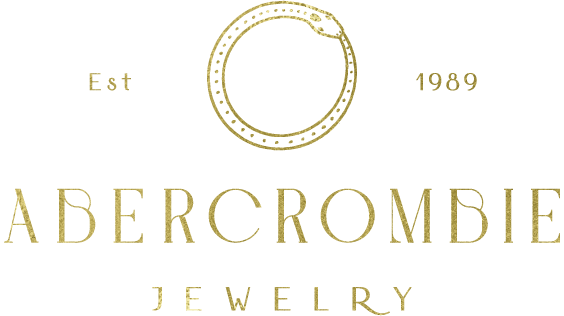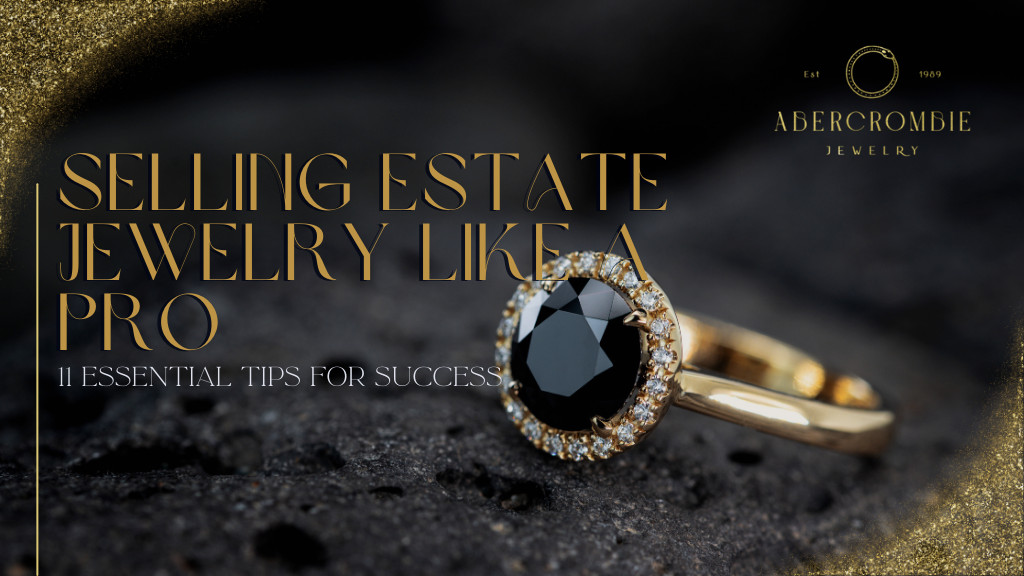Estate jewelry often carries great sentimental value, so making the decision to sell it can seem a little daunting. Fortunately, Abercrombie Jewelry has curated a list of 11 essential tips to help guide you through the process of selling estate jewelry and ensure that you are getting a good price for your fine jewelry.
What Is Estate Jewelry?
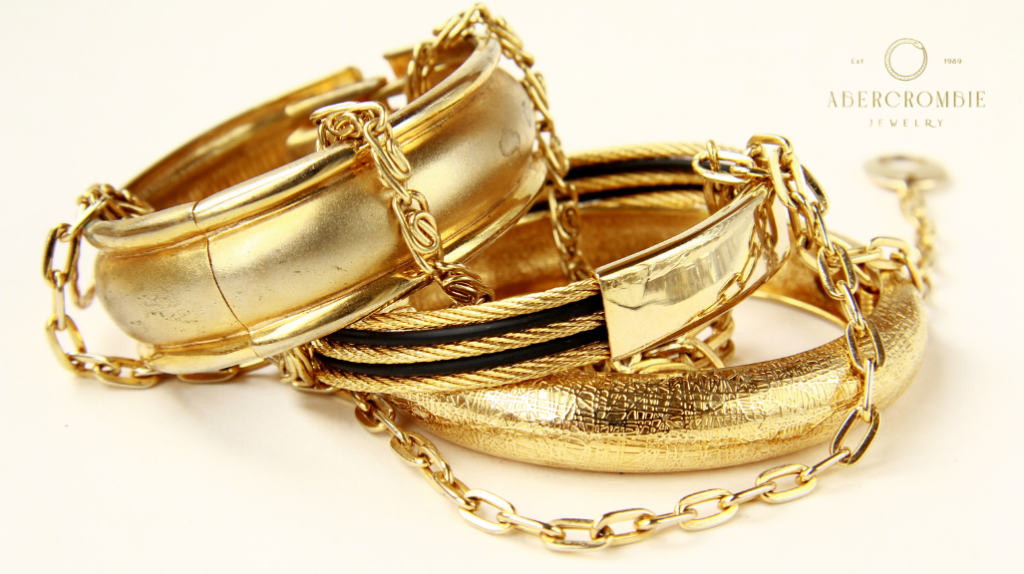
Before we get into the ins and outs of selling jewelry, let’s first talk about this type of jewelry.
In essence, estate jewelry is a term used to refer to pre-owned items that are usually obtained from the estate of someone who passed away or through private sales. It includes a diverse collection of fine jewelry pieces, such as earrings, rings, brooches, necklaces, bracelets, and more.
Keep in mind that estate jewelry can range in age, design, and origin, so it is not uncommon to see antique and vintage items as part of the ensemble, in addition to more contemporary creations. This type of jewelry is distinguished from others by its history and pedigree, which typically evokes feelings of nostalgia, beauty, and originality.
Whether inherited or purchased through private transactions, estate jewelry allows collectors and jewelry lovers to possess and enjoy timeless pieces of lasting elegance and beauty.
Our Top Tips for Selling Estate Jewelry
Now that you understand what is estate jewelry is, let’s talk about how you can sell yours for the most money. Follow these simple tips to maximize your revenue:
1. Understand the Value of Your Piece
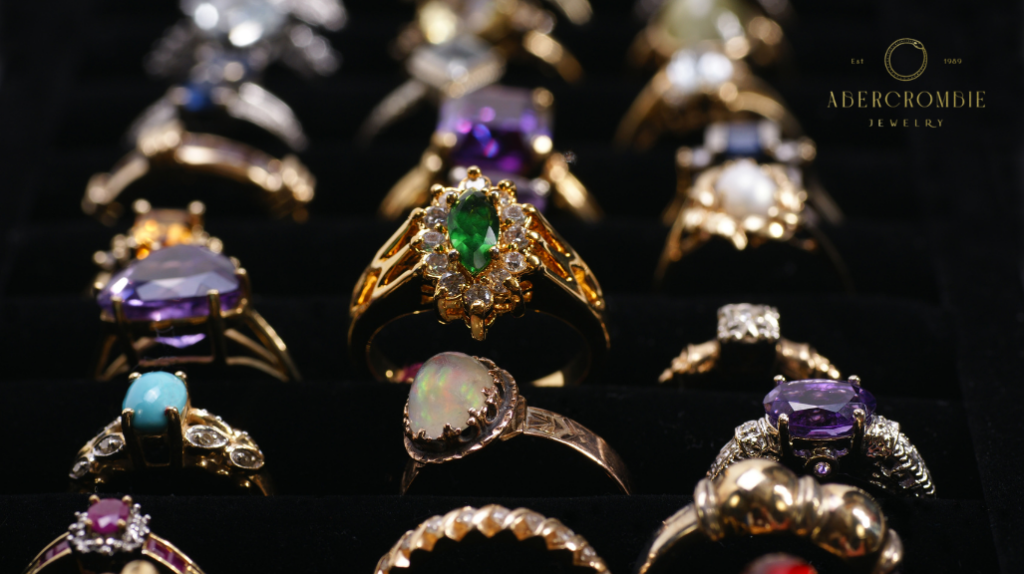
The first step is learning more about what your jewelry is worth. Before approaching a potential buyer or accepting an offer for your item, make sure you know what it’s worth. This will help you avoid low offers and maximize your profits.
To accurately establish the market value of your estate jewelry, consider using expert appraisers, such as qualified gemologists or respected jewelers.
An appraiser will look carefully at the purity of the precious metals in your jewelry and determine the value of your precious stones by looking at elements such as the cut and color. Obtaining proof of an appraisal and the value of your estate jewelry can be crucial if you want to sell your fine diamond jewelry for a high price.
Read more: How to Sell Vintage Jewelry
2. Gather the Relevant Documentation
Put yourself in the shoes of a potential buyer. Would you pay top dollar for vintage jewelry that has no accompanying paperwork? The chances are that you wouldn’t.
Before selling your estate jewelry, acquire any necessary paperwork, such as proof of appraisals, certificates of authenticity, proof of purchase, and any background or historical information about the jewelry being sold.
Detailed documentation not only increases the legitimacy and value of your jewelry, ensuring that those interested know which precious metal and stones they are investing in but also gives them the reassurance that they are not being scammed.
3. Get Your Items Cleaned
Before you sell jewelry, it’s important to have it cleaned. Because jewelry is typically worn or collected, appearances are everything. This means that ensuring that it looks as appealing as possible is the key to making a sale. Moreover, it is best to have it professionally cleaned, as at-home methods could result in damage to your valuable gold jewelry, which is the last thing you want.
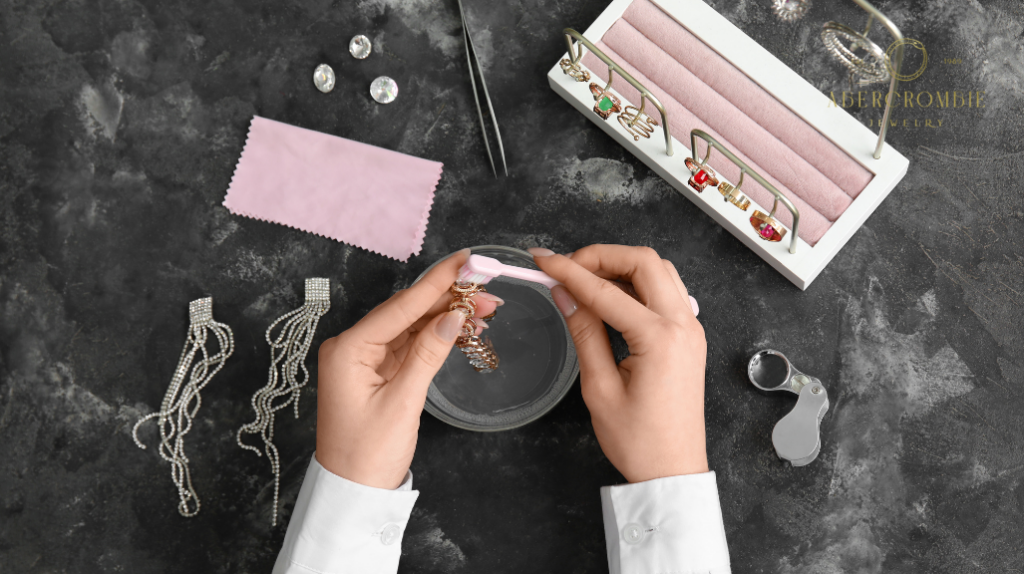
4. You Might Want to Keep Your Jewelry in its Original Packaging
Suppose your estate jewelry is still in its vintage Tiffany box. In that case, this may make the item more appealing to potential buyers. Instead of throwing it out, attempt to have the original box repaired to create a more authentic buying experience.
5. Select the Right Selling Method
The truth is that there are a number of ways to sell estate jewelry. From private buyers to jewelry stores and auction houses, you have several options available to you. This includes the following:
- Auction houses
- Online marketplaces
- Jewelry stores
- Pawn shops
- Private sales
Weigh the pros and cons of each option and take the historical value of your jewelry piece into consideration when taking your pick.
While a pawn shop may seem like the fastest option, it’s important to remember that you could end up getting a lot less than you bargained for when you settle for this option. Do your research and explore a few avenues before deciding which one to go with.
6. Price Your Jewelry Competitively
There’s one reality you need to digest when selling diamond earrings or engagement rings: The jewelry industry is teeming with sellers just like you. While your items may be unique, you must conduct research to ensure that you are pricing them competitively.
Having your piece appraised can help with this. However, you should not base your pricing purely on the appraised value. Also, consider market conditions. Is it favorable to sell gold right now?
Approaching a professional for advice can definitely help you determine the best price for your jewelry.
7. Consider Partnering with an Expert
Unfortunately, navigating the industry as a newcomer is no easy task, which is why partnering with someone who has more experience can be game-changing. This individual can shed more light on the process and help you select the right selling method.
If you have particularly valuable items, such as antique or signed jewelry, this can be particularly beneficial. A trained professional can offer advice on whether it may be worth it to approach an auction house or if it would present too much of a risk.
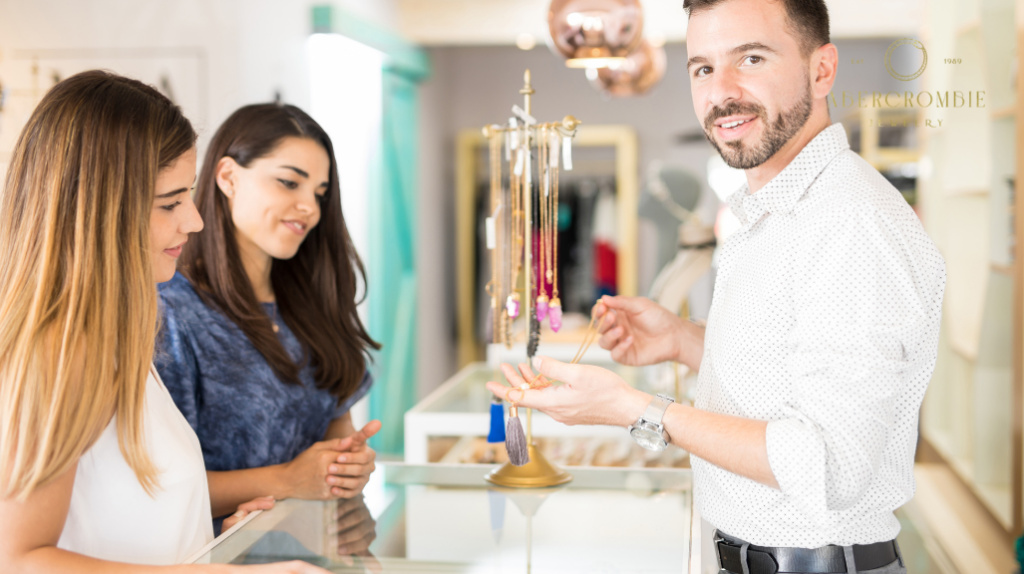
8. Watch Out for Scams
Sadly, the marketplace is teeming with scam artists waiting to pull the wool over your eyes. Make sure you are verifying buyer identities and meeting with anyone who is interested in a public place if you are conducting a private sale. When possible, take someone with you and avoid giving the buyer the item without first receiving payment.
You should also be wary of people who are willing to pay high prices to buy jewelry. In many cases, these individuals will try to get you to hand over the items without actually making payment.
9. Be Open to Negotiation
Being open to negotiation is essential when selling estate jewelry. This will help you maximize selling opportunities, build a rapport with potential buyers, get fair market value for your items, and finalize your sale.
However, while negotiating is essential, make sure that you are not settling for an unfair amount. Be sure to do your research to determine what a fair amount would look like and set a minimum threshold that you will not cross when negotiating.
10. Exercise Patience
Selling estate jewelry usually demands patience and perseverance, especially in a competitive market or under difficult economic conditions.
The reality is that it can take a long time for your items to be sold. Avoid becoming discouraged by initial disappointments or delays, and continue to be proactive in your marketing efforts. To increase your chances of success, constantly evaluate and adapt your plans depending on market input and emerging trends.
11. Attend Exhibitions to Showcase Your Estate Jewelry
Our final tip involves marketing your items. By attending exhibitions and jewelry shows in your area, you can display your pieces to possibly attract investors. While advertising online may be a great option, when people see the jewelry in person, it may increase their desire to take the item home, which can enhance your chances of making a sale at a good price.
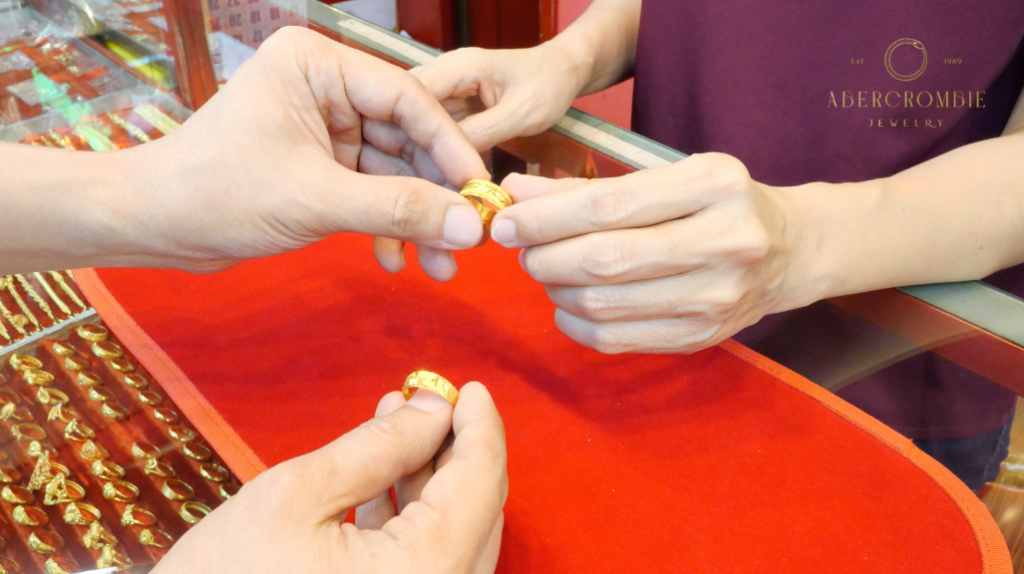
Final Thoughts
Well, there you have it! With these top tips, you can find your inherited jewelry a new home. Did you know that Abercrombie Jewelry pays top dollar for estate jewelry in Austin, Texas? We also offer jewelry appraisals to help you learn more about the value of your pieces.
Whether you have antique jewelry or something more in keeping with contemporary fashion trends, we are confident that we can make the buying process seamless and fuss-free.
Get in touch with us today to learn more and convert your estate jewelry into cash quickly!
